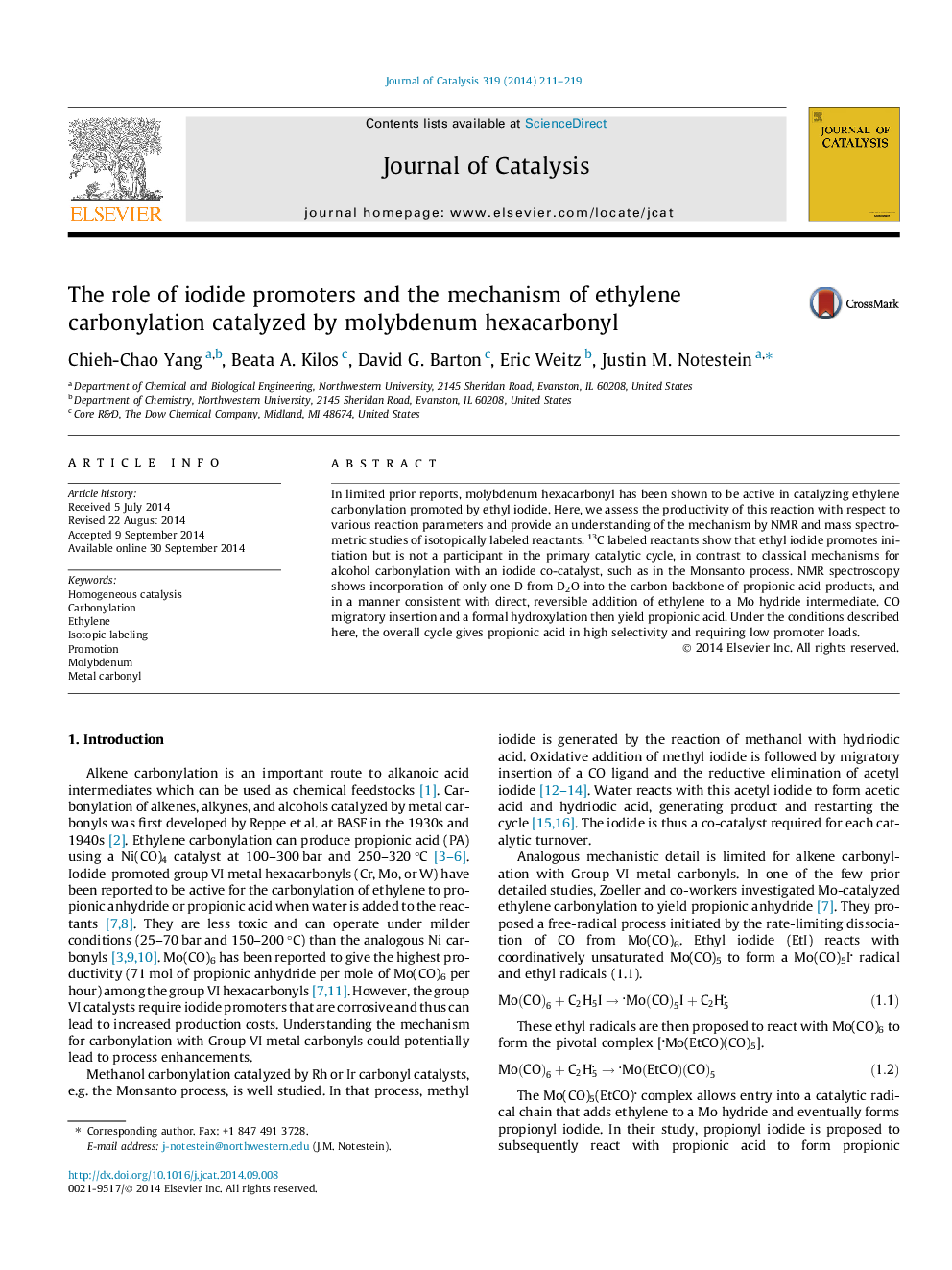| کد مقاله | کد نشریه | سال انتشار | مقاله انگلیسی | نسخه تمام متن |
|---|---|---|---|---|
| 61010 | 47558 | 2014 | 9 صفحه PDF | دانلود رایگان |
• 100% propanoate yield with as little as 3% ethyl iodide promoter.
• Determined sensitivity to promoter ratios and partial pressure of CO, ethylene, and H2.
• 13C-labeling indicates ethyl iodide initiates catalyst but does not participate in the catalytic cycle.
• Deuterium-labeling shows a Mo hydride complex reacts reversibly with ethylene.
In limited prior reports, molybdenum hexacarbonyl has been shown to be active in catalyzing ethylene carbonylation promoted by ethyl iodide. Here, we assess the productivity of this reaction with respect to various reaction parameters and provide an understanding of the mechanism by NMR and mass spectrometric studies of isotopically labeled reactants. 13C labeled reactants show that ethyl iodide promotes initiation but is not a participant in the primary catalytic cycle, in contrast to classical mechanisms for alcohol carbonylation with an iodide co-catalyst, such as in the Monsanto process. NMR spectroscopy shows incorporation of only one D from D2O into the carbon backbone of propionic acid products, and in a manner consistent with direct, reversible addition of ethylene to a Mo hydride intermediate. CO migratory insertion and a formal hydroxylation then yield propionic acid. Under the conditions described here, the overall cycle gives propionic acid in high selectivity and requiring low promoter loads.
Figure optionsDownload high-quality image (65 K)Download as PowerPoint slide
Journal: Journal of Catalysis - Volume 319, November 2014, Pages 211–219
